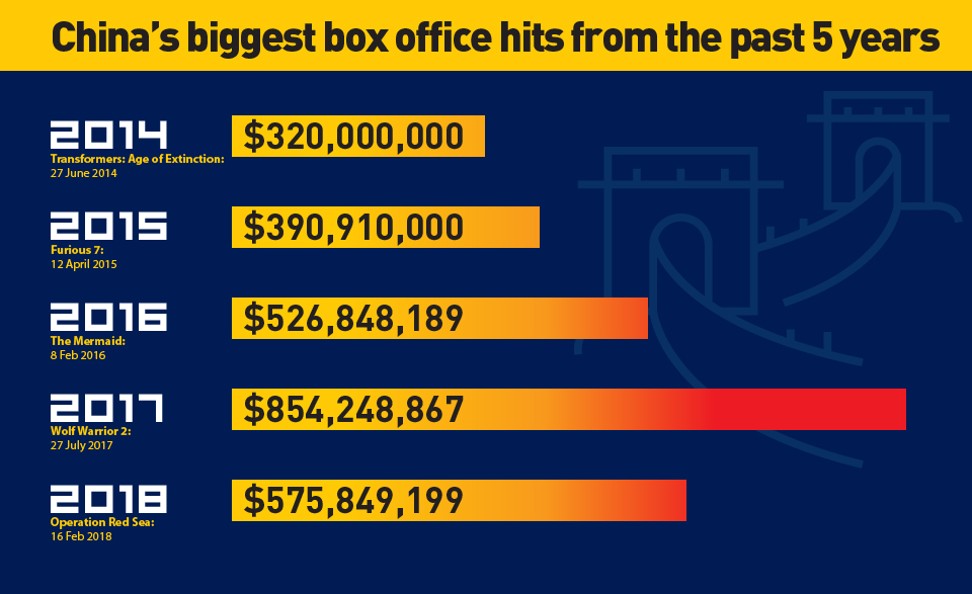
Asura flops, but shines a light on China’s increasingly sophisticated film audience
Vivienne Chow says that the devastating failure of the Chinese film industry’s most expensive production ever, despite rising box office numbers overall, shows that filmmakers now need original storytelling to woo a domestic audience of growing discernment – and that’s good news for the Chinese film industry
To be fair, the future of China’s film industry has never looked so promising. The country overtook North America as the world’s largest film market in the first quarter of this year, and though it lost the title halfway through 2018, as North America went up to nearly US$6 million through June, China’s film industry is still on the rise.
The half-year industry report from Ent Group revealed that the Chinese box office has achieved the best-ever first six months in 2018, totalling 31.6 billion yuan (US$4.8 billion) with 889 million viewers, a 16 per cent increase from the 27.2 billion yuan recorded during the same period of 2017.
Of the half-year box office receipts, 18.8 billion yuan, or 59.6 per cent, came from domestic productions, with local blockbusters Operation Red Sea and Detective Chinatown 2 driving movie-goers to the cinema.
The figures have given a great deal of confidence to the film industry, with many industry players believing that this could be the year that China will eventually become the world’s No 1.
But the truth is, China’s film industry is still at a developing stage, and the epic flop of Asura is a wake-up call.
Watch: Most expensive Chinese movie pulled from theatre after disastrous opening
The embarrassing outcome reflects how little many filmmakers as well as investors understand their audience.
And despite the fact that China imposes a quota on foreign cinema, they watch a great deal of foreign TV series via internet streaming platforms, legal or not. In other words, they are no longer the country bumpkins who know nothing about the outside world.
And, most important of all, they are interested in great stories, which, apparently, Asura failed to deliver.

Judging from many of the recent box office successes, a good storyline holds the key. One can argue that Operation Red Sea is just another patriotic blockbuster, but it hits the emotional soft spot for movie-goers across all ages, who genuinely believe that China is a rising global power.
Spanish thriller Contratiempo raked in US$25.6 million, with a 8.7 rating on Douban, surpassing Spider-Man: Homecoming five days after it opened. And the Thai comedy Bad Genius also earned both critical and commercial acclaim last year.
Watch: Trailer for Thai comedy Bad Genius
The numbers show that Chinese audiences demand interesting, original stories that resonate emotionally. They are tired of formulaic Hollywood blockbusters, let alone a localised version that does not offer better special effects or a better storyline.
Even recycling the success formula of Hong Kong cinema from the 1980s and ’90s does not work – the failure of Hong Kong veteran filmmaker Vincent Kok Tak-chiu’s Perfect Couple and Keep Calm and Be a Superstar were classic examples, despite the latter starring Eason Chan Yik-shun, the city’s biggest Canto-pop star of the past decade.
The film Asura may have flopped, but China’s increasingly discerning movie-goers have surely won a victory. It is to be hoped that their demand for better quality will be heard by filmmakers and production companies, and China will finally have a film industry it can be proud of.
Vivienne Chow is a Hong Kong-based journalist and cultural critic. She is the founder of Cultural Journalism Campus
Correction: An earlier version of the story listed Alibaba Pictures as one of the producers of the film Asura. This is wrong. It is one of the investors.


